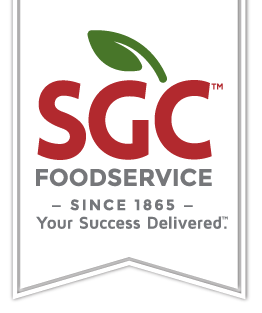In the bustling world of restaurants, where culinary excellence often takes center stage, there lies a profound opportunity to extend beyond the confines of the kitchen and dining room. Community engagement isn't just a buzzword—it's a vital aspect of restaurant operations that goes beyond serving delicious meals. It's about recognizing the role restaurants play as integral members of their communities and actively contributing to their betterment.
1. Volunteer Opportunities
The heartbeat of any community thrives on the collective efforts of its members, and restaurant staff can play a pivotal role in this synergy. Encouraging team members to volunteer at local charities, food banks, or community events fosters camaraderie and instills pride in contributing to the greater good. Consider offering paid volunteer days to employees, providing them with the opportunity to support their involvement in community service without sacrificing their livelihoods.
2. Donation Programs
Harnessing the power of patronage, restaurants can establish donation programs that channel a portion of sales or proceeds from specific menu items to local nonprofits or causes. Additionally, hosting fundraising events or donation drives within the restaurant creates a platform for patrons to contribute essential items or funds to support community organizations, further amplifying the impact of collective generosity.
3. Partner with Local Organizations
Collaboration is key to effecting meaningful change within a community. By forging partnerships with local nonprofits, schools, or shelters, restaurants can extend their reach beyond the confines of their establishment. Whether it's providing meals or catering services for community events or programs, or collaborating with nearby businesses or organizations to host joint initiatives, the possibilities for creating positive ripple effects are endless.
4. Support Local Food Systems
Embracing the ethos of sustainability and locality, restaurants can source ingredients from local farmers and producers, thereby supporting the local economy and reducing their carbon footprint. Participation in farm-to-table initiatives or farmer's markets not only allows restaurants to showcase the rich tapestry of local products and artisans but also fosters a deeper connection between consumers and the origins of their food.
5. Offer Community Programs
Beyond the realm of culinary delights, restaurants can serve as hubs for community enrichment. By organizing educational workshops, cooking classes, or mentorship programs, especially targeted at youth or aspiring chefs, restaurants can empower individuals to hone their skills and pursue their passions. Additionally, hosting events such as community dinners or food festivals celebrates the diversity of local culture and cuisine, fostering a sense of belonging and camaraderie among residents.
6. Environmental Initiatives
With great power comes great responsibility, and restaurants have a unique opportunity to lead by example in environmental stewardship. Implementing eco-friendly practices in restaurant operations, such as reducing waste, conserving energy, and using sustainable packaging, not only reduces environmental impact but also sets a precedent for responsible business practices. Participation in environmental cleanup efforts or tree-planting initiatives further demonstrates a commitment to preserving and protecting the natural resources that sustain us all.
7. Engage with Customers
In an era defined by digital connectivity, leveraging social media, newsletters, and websites can amplify the reach and impact of community involvement efforts. Sharing stories and updates about community engagement initiatives not only inspires customers to get involved but also fosters a sense of transparency and authenticity. Additionally, inviting customers to participate in volunteer activities or donation drives organized by the restaurant cultivates a sense of shared purpose and collective action.
In the tapestry of community life, restaurants are not merely places to sate hunger but vibrant hubs of connection and collaboration. By embracing the ethos of giving back, restaurant operators can enrich the fabric of their communities and leave a lasting legacy that transcends the confines of the dining table. As we reflect on the importance of community engagement, let us reaffirm our commitment to making a positive impact—one meal, one volunteer hour, one partnership at a time.

_cuzfc6j0.jpg)